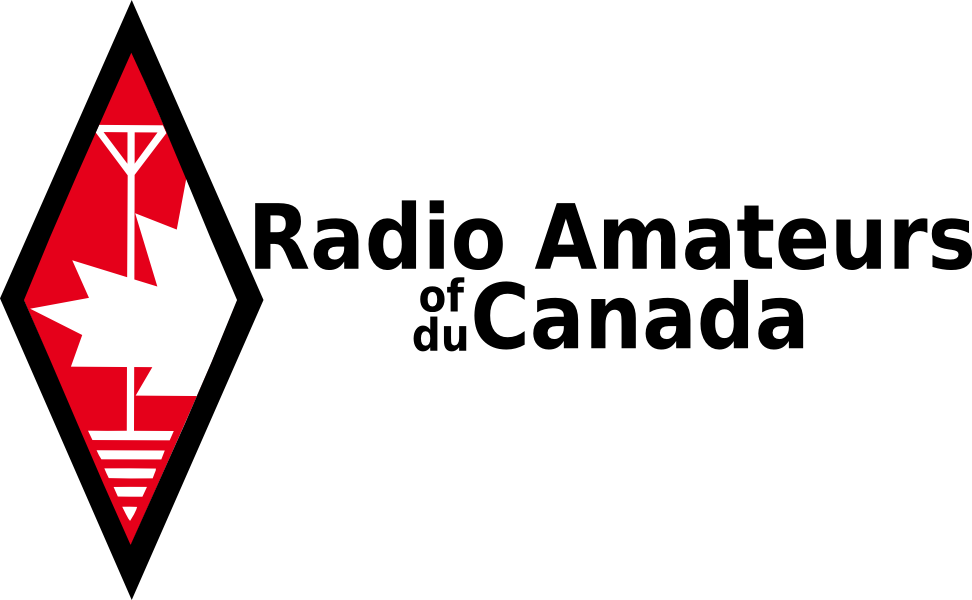Media Releases | Radio Amateurs of Canada | Ontario Government

Radio Amateurs of Canada is receiving $545,000 to recruit and retain volunteers, upgrade skills and prepare teams for deployment within Ontario. These efforts will ensure a sustainable volunteer workforce is prepared with necessary skills for emergency telecommunications.
Radio Amateurs of Canada Strengthens Emergency Preparedness with Auxiliary Communications Service and New Recruitment Plan
For immediate release:
Toronto, Ontario – July 23, 2025
Radio Amateurs of Canada is proud to announce the development of the Auxiliary Communications Service in Ontario, alongside a comprehensive new recruitment and retention plan. This initiative is part of the Ontario government’s $10 million investment in emergency preparedness grants, aimed at enhancing the response capabilities of Ontario Corps partners across the province.
Under the leadership of Premier Ford and the Ministry of Emergency Preparedness and Response, Radio Amateurs of Canada is receiving $545,000 to recruit and retain volunteers, upgrade skills, and prepare teams for deployment within Ontario. These efforts will ensure a sustainable volunteer workforce equipped with the necessary skills for emergency telecommunications.
The Auxiliary Communications Service will play a crucial role in providing reliable communication during emergencies, leveraging the expertise of skilled professionals and highly trained volunteers. This service will be instrumental in supporting local emergency responders and ensuring communities are better prepared to respond to local emergencies.
“We are honoured to stand with our Ontario NGO partners and the Ministry of Emergency Preparedness and Response in this vital initiative.”
Radio Amateurs of Canada is part of a province-wide network of skilled professionals and highly trained volunteers who can be mobilized quickly to help communities hit hard by emergencies. Items that partners have already purchased using grants include emergency food kits, GPS devices, satellite phones, canteen trucks, portable shelters, training for volunteer drone pilots, and more.
During the ice storm that left thousands of Ontarians in the dark and cold earlier this year, Ontario Corps partners were deployed, volunteering over 6,000 hours. They provided tree-clearing services, supported evacuation reception centers, and delivered over 3,700 meals and food hampers, as well as conducted over 4,100 wellness checks.
Radio Amateurs of Canada is committed to enhancing emergency readiness and response capacity, ensuring that communities across Ontario are better prepared to face any challenges that may arise. We look forward to working closely with our partners and the Ministry of Emergency Preparedness and Response to achieve these goals.
For more information, please contact:
Announcement by the Ontario Government
Toronto, Ontario – July 21, 2025
The Ontario government is investing $10 million in emergency preparedness grants to strengthen the response capabilities of Ontario Corps partners around the province and ensure they can get boots on the ground quickly in case of an emergency. This funding is part of the government’s plan to protect Ontario by ensuring communities are better prepared to respond to local emergencies and have critical resources like debris removal tools and machinery, flood barriers and drones deployed at a moment’s notice.
“Under the leadership of Premier Ford, our government is protecting Ontario from all threats – from wildland fires to flooding, ice storms or whatever else may come our way,” said Jill Dunlop, Minister of Emergency Preparedness and Response. “With 13 participating Ontario Corps partners so far, we’re investing in made-in-Ontario solutions to support local emergency responders as soon as we’re needed.”
The province is also welcoming 13 partner organizations to Ontario Corps, with more expected to join. Partners include: Attachment and Trauma Treatment Centre for Healing (ATTCH) Niagara, Feed Ontario, GlobalMedic, Habitat for Humanity Windsor-Essex, Independent First Nations Alliance, St. John Ambulance, Ontario Federation of Indigenous Friendship Centres, Kenora Chiefs Advisory – Ogimaawabiitong, Ontario Search and Rescue Volunteer Association (OSARVA), Ontario 211, Radio Amateurs of Canada, The Salvation Army and Team Rubicon Canada.
Ontario Corps brings a province-wide network of skilled professionals and highly trained volunteers that can be mobilized quickly to help communities hit hard by emergencies. Items partners have already used grants to purchase include emergency food kits, GPS devices, satellite phones, canteen trucks, portable shelters, training volunteers for drone piloting and more.
During the ice storm that left thousands of Ontarians in the dark and cold earlier this year, Ontario Corps partners were deployed, volunteering over 6,000 hours, providing tree-clearing services and supporting evacuation reception centres, providing over 3,700 meals and food hampers, and conducting over 4,100 wellness checks.
The Ontario government is investing $10 million in emergency preparedness grants to strengthen the response capabilities of Ontario Corps partners around the province and ensure they can get boots on the ground quickly in case of emergency. Current Ontario Corps partners include:
Attachment and Trauma Treatment Centre for Healing (ATTCH) Niagara
ATTCH Niagara is receiving $262,000 to provide trauma training for emergency management personnel and record for future use, develop a “train the trainer” manual, and train trauma-specialized facilitators. They will also train volunteer therapists across Ontario, create a heat map of volunteer locations, as well as lead several additional training initiatives.
Feed Ontario
Feed Ontario is receiving $391,000 to increase its capacity to provide food support more quickly in emergency response situations. This includes packing and storing five truckloads of emergency food boxes, totalling over 7,000 food boxes for distribution during emergencies.
GlobalMedic
GlobalMedic is receiving $1.35 million to procure flood barriers and accessories; specialty response equipment such as off-road vehicles, drones, a shower trailer and firefighting equipment; and vehicles for equipment deployment and responder transport. They are also investing in additional training for volunteers and local responders.
Habitat for Humanity Windsor Essex
Habitat for Humanity Windsor Essex is receiving $583,000 to expand its Repair Revolution program by training team leaders and volunteers in disaster-specific skills such as emergency repairs, water damage remediation, mold prevention/remediation and smoke/fire damage repair. They will also equip a mobile response vehicle for immediate deployment and enhance staff and volunteer skills with a Red Seal Carpenter training.
Independent First Nations Alliance (IFNA)
Independent First Nations Alliance is receiving $647,000 to support its IFNA Community and Partner Preparedness Project, working with NGOs to help communities across Northwestern Ontario prepare for, respond to and recover from emergencies. In addition to training, the project also includes the procurement, storage and maintenance of equipment and supplies required for a mass evacuation hub.
Kenora Chiefs Advisory – Ogimaawabiitong (KCA)
KCA is receiving $754,000 to provide emergency management training, ensure a coordinated and effective response to emergencies nation-to-nation, and to leverage First Nations traditional knowledge to inform mobilization response plans.
Ontario Federation of Indigenous Friendship Centres (OFIFC)
Ontario Federation of Indigenous Friendship Centres is receiving $1,033,000 to strengthen the emergency readiness and response capacity of the 31 Friendship Centres in Ontario by developing community-specific resources tailored to Indigenous needs. They will also identify and address infrastructure and technology gaps to ensure centres are equipped to respond to emergencies effectively and improve the development of community response and recovery plans.
Ontario Search and Rescue Volunteer Association (OSARVA)
OSARVA is receiving $546,000 to increase their ability to deploy anywhere in Ontario to provide professional support and search and rescue assistance. They offer a robust training program, including realistic emergency management exercises as well as courses to train volunteers in incident command/management, emergency management and wilderness first aid.
Ontario 211
Ontario 211 is receiving nearly one million dollars to enhance their system’s capacity to respond to large-scale emergencies, and to strengthen relationships with Indigenous and Francophone communities to better serve their needs in future emergencies. Through the funding they are building capacity to conduct exercises, and support callers and staff when coordinating outreach.
Radio Amateurs of Canada
Radio Amateurs of Canada is receiving $545,000 to recruit and retain volunteers, upgrade skills and prepare teams for deployment within Ontario. These efforts will ensure a sustainable volunteer workforce is prepared with necessary skills for emergency telecommunications.
Salvation Army
Salvation Army is receiving $1,033,000 to purchase critical equipment such as: washroom and shower trailers, a canteen truck, generators, modular shelters, a bunkhouse and communications devices. They will also host divisional exercises to engage external partners and volunteers to test and refine emergency response plans.
St. John Ambulance
St. John Ambulance is receiving $832,000 to purchase vehicles for operations, Base Camp Connect Nano devices to improve communication and safety equipment to ensure volunteers are protected during response efforts. They are also implementing a “train the trainer” program to increase mental health awareness and support.
Team Rubicon Canada
Team Rubicon Canada is receiving $929,000 to support Project ONward, which aims to decentralize logistical capabilities such as route clearance tools like chainsaws and grapple buckets, as well as safety equipment like AEDs and high-voltage detectors. Equipping newly skilled volunteers will enable a more rapid local response. Team Rubicon is also strengthening its volunteer capacity through targeted training initiatives, and enhancing its field operations with decentralized camp solutions including power generation, bedding and additional tools.

